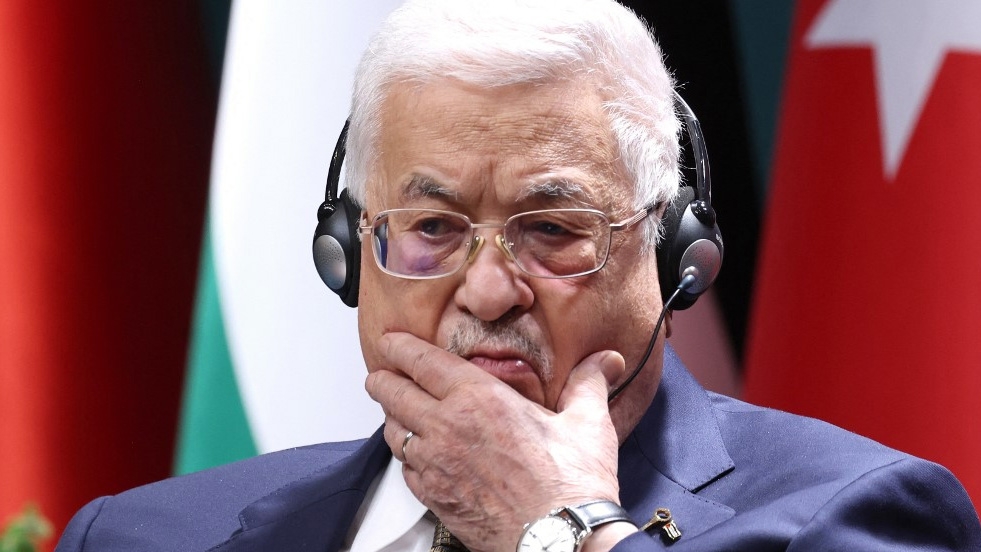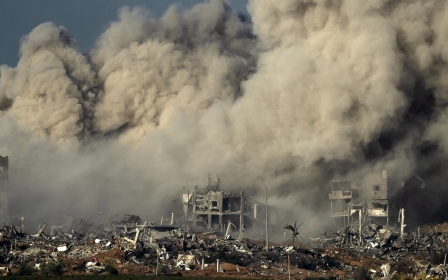Why the Palestinian Authority has remained silent on the Gaza war

Throughout Israel’s war on Gaza, the Palestinian Authority (PA) has been notably absent.
The PA was not part of the 7 October Hamas-led attack, which is understandable, as it does not identify as an armed resistance force. The Palestine Liberation Organisation, which is supposed to comprise an inclusive national framework and leadership for resistance, has been reduced under President Mahmoud Abbas to less than a subsidiary of the PA.
Still, on the spectrum between leading the armed resistance and standing passively by, as the PA has done, there was a wide range of actions it could have taken.
The events of 7 October surprised everyone, including the PA, which realised that the magnitude of the attack would lead to an unprecedented Israeli response.
The PA likely assumed that this would result in the decisive elimination of Hamas as a military force or a governing power in Gaza, and aligned with this understanding by taking a position of negative neutrality, awaiting that outcome so it could take control of Gaza with abundant financial aid for reconstruction.
New MEE newsletter: Jerusalem Dispatch
Sign up to get the latest insights and analysis on Israel-Palestine, alongside Turkey Unpacked and other MEE newsletters
This position has entailed near-silence on the part of the PA, and indirect acceptance of the ongoing situation. Within days of the 7 October attack, Abbas condemned Hamas, which is considered a terrorist group in the UK and other countries. He has also accused Hamas of giving Israel an excuse to attack Gaza.
What the PA did, ultimately, was nothing; it let the Israeli war machine do what it could not do itself.
Fatal mistake
True, the PA could not have stopped the war - but its calls to end the war, largely anodyne and self-promotional, have not given rise to any policy actions. The PA has thus found itself aligned with the Jordanian-Egyptian-Saudi-Emirati axis, which sees the war as a necessary evil, especially if it ends Hamas’s rule in Gaza.
This bias, at such a historic moment, has degraded the PA’s global standing, especially in light of Washington’s blatant hostility towards the aspirations of the Palestinian people.
Follow Middle East Eye's live coverage of the Israel-Palestine war
The PA was indeed in this same axis before the Gaza war, but it made some savvy manoeuvres to pressure the US by using its relations with Russia and China as leverage. Unlike Saudi Arabia, however, it cannot exert significant pressure through such tactics.
Some might ask: was there another position the PA could have taken? There are always other options. In this case, the PA should have sought some form of Palestinian unity, which Hamas would likely have welcomed amid attempts to isolate and demonise it.
Various local and regional forces have made suggestions in this regard. But the PA, in its quest to replace Hamas in governing Gaza, has thwarted all such attempts.
The PA's avoidance of elections has made its legitimacy a card in the hands of external forces, specifically the US
This was a fatal mistake. Israeli Prime Minister Benjamin Netanyahu and his far-right government, who want to eliminate Hamas, do not accept the PA as an alternative, considering that a unified PA in the West Bank and Gaza could pose a political threat to their rule. A unified Palestinian leadership would also be a significant step towards Palestinian statehood.
Moreover, the PA’s avoidance of elections has made its legitimacy a card in the hands of external forces, specifically the US. The slogan of a “renewed” PA is the preferred American alternative to periodic elections, as long as that renewal is coordinated with Washington. This makes the PA captive to the US position, which translates into the Israeli position.
In nearly eight months of war in Gaza, Israel’s objectives have repeatedly been thwarted, unless killing thousands of innocent Palestinians was among the goals. Hamas might never again rule Gaza as it did before, but it will have the upper hand in determining what comes next.
The views expressed in this article belong to the author and do not necessarily reflect the editorial policy of Middle East Eye.
Middle East Eye delivers independent and unrivalled coverage and analysis of the Middle East, North Africa and beyond. To learn more about republishing this content and the associated fees, please fill out this form. More about MEE can be found here.





